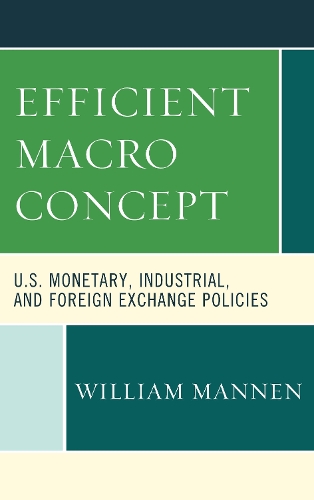
Efficient Macro Concept: U.S. Monetary, Industrial, and Foreign Exchange Policies
(Hardback)
Publishing Details
Efficient Macro Concept: U.S. Monetary, Industrial, and Foreign Exchange Policies
By (Author) William Mannen
Bloomsbury Publishing PLC
Lexington Books
6th March 2018
United States
Classifications
Professional and Scholarly
Non Fiction
Economic growth
339.530973
Physical Properties
Hardback
208
Width 158mm, Height 237mm, Spine 22mm
503g
Description
The United States has had a tumultuous monetary and banking history. The bitter Bank War during Andrew Jacksons presidency meant that the country never developed a central bank in the 1800s. The preCivil War monetary standard was deflationary until the fortuitous California gold discovery. Political turmoil erupted later in the nineteenth century over whether the government should freely coin silver. Meanwhile, Congress imposed a banking system that virtually drove bank reserves into stock market speculation. Even when the Federal Reserve was finally established in 1913, it was initially decentralized and unable to effectively respond to the Great Depression. From this narrative emerges a money supply increasingly managed by central banking authorities and increasingly nationalized with the end of the gold standard. Efficient Macro Concept: U.S. Monetary, Industrial, and Foreign Exchange Policies shows that the next step forward is a set of industrial and foreign exchange policy options for driving real growth in the economy. Stronger economic growth is possible through specialized institutions and transactions rooted in the tradition of central banking but flexible and compatible with free enterprise and balanced budgets.
Reviews
William Mannens Efficient Macro Concept is a provocative tour through Americas money and banking history as he makes an evolutionary case for a new monetary industrial policy in a postquantitative easing world. -- Gary Clayton, Northern Kentucky University
Author Bio
William Mannen is a lawyer with a JD from Washington University in St. Louis.
